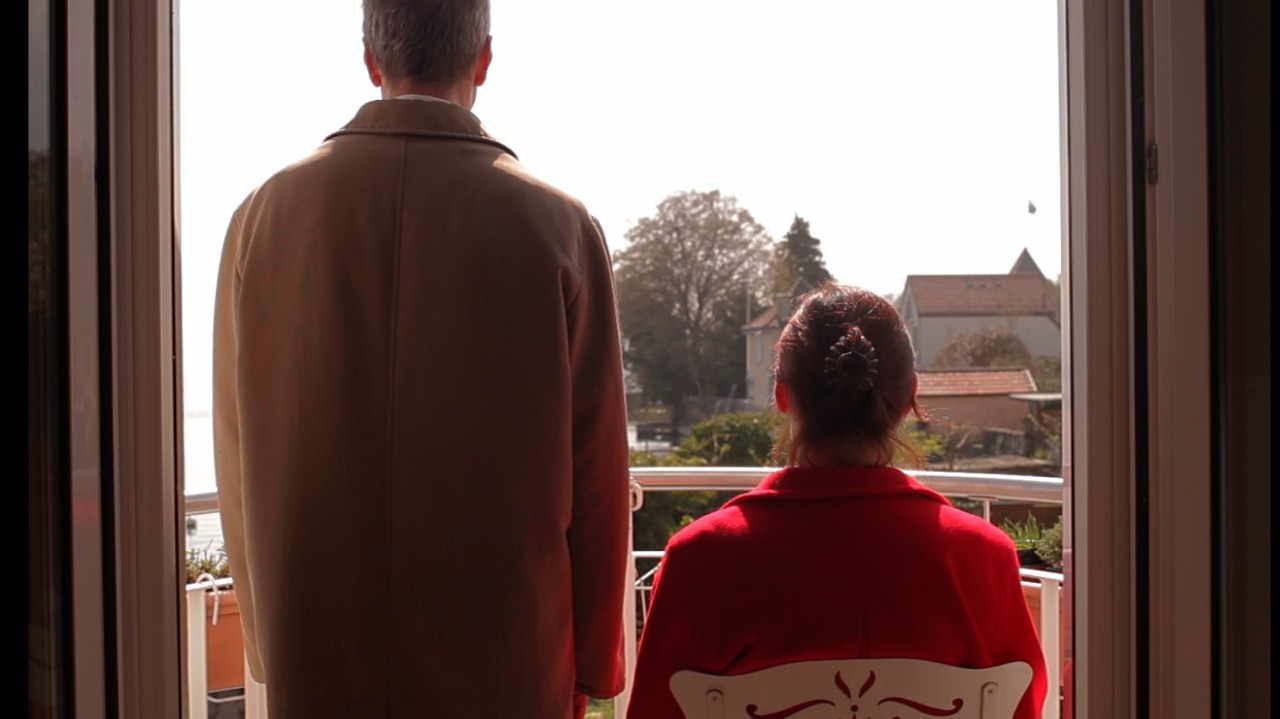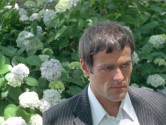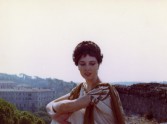
Not Reconciled.
The Cinema of Jean Marie Straub and Danièle Huillet
Danièle Huillet (1936-2006) once recalled that she could clearly remember first meeting Jean-Marie Straub (b. 1933) in Paris in November 1954 because the Algerian War was just breaking out. Soon beginning work on a script for a film about the life of Bach, their relationship was again marked by the conflict when the couple left France in 1958 so that Straub could dodge the draft.
They settled in Munich, home to a lively, young film scene, making their first films in German, including Machorka-Muff, Not Reconciled and the long-planned Chronicle of Anna Magdalena Bach, films that garnered them a strong international critical reputation. Eventually settling in Rome in 1969, they became truly international filmmakers, making films in German, Italian and French, shot with international crews and casts in Germany, Italy, France, Egypt and (three shots) in America.
Compared early on to the work of Bresson, Dreyer and Brecht, their films are, nevertheless, truly singular. These are films that disorient and overwhelm. And through the moments of disorientation come brilliant moments of clarity. These films stare at, and listen intensely to, the world and its people, so that we may see what is always present but absent. Filmed by a camera Straub once described as an "accomplice," the characters energetically burst off the screen through carefully rehearsed performances that focus on the voice and minimal, but immense, gestures. We experience their struggles, their hopes, and their pain as though they were sitting right in front of us.
Working with simple means, small budgets, and a set of gradually refined rules, their films are nevertheless diverse and varied, polished and handmade. They collaborated with many of the same crew members for decades (sound engineer Louis Hochet, cinematographers Uto Piccone, Renato Berta, and William Lubtchansky) and they edited their films themselves, creating unexpected, off-kilter rhythms out of blocks of shots ("cinematographic material," they called it) with direct location sound that was never mixed to smooth out the discontinuity between takes.
Just as contemporary politics and border crossing marked their young lives, their films return constantly to themes relating to geography, national borders and language. In short, the land: who it belongs to, how it is divided and by whom, how it is used, whose blood has been spilled on it and who lies buried beneath. Already present as a background issue in their early short films, the land takes an ever more prominent role, overtaking the frame and soundtrack. Long landscape sequences punctuate, break up, or emphasize the drama in Moses and Aaron and Fortini/Cani; making bonfires and sacrifices to the gods to ensure a good harvest are discussed again and again in From the Cloud to the Resistance; Too Early, Too Late surveys the landscapes of France and Egypt in relation to their various revolutions; and the earth comes to the fore as a secondary character, if not in some sense a protagonist, in Antigone, Workers, Peasants and The Death of Empedocles, whose subtitle—"When the green of the earth glistens for you anew"—could very well serve to describe their entire oeuvre. – Ted Fendt, editor of Jean-Marie Straub and Danièle Huillet (FilmmuseumSynemaPublications, 2016)
Concurrent with the film retrospective, Jean-Marie Straub and Danièle Huillet: Three Works will be on exhibit on Levels 0 and 3 of the Carpenter Center August 4 – September 24. The installations feature video, stills, an annotated script and other materials related to Every Revolution is a Throw of the Dice, Cézanne. Conversation with Joachim Gasquet and A Visit to the Louvre. Straub and Huillet’s publication Writings (2016) accompanies the exhibition and is available in the Carpenter Center’s CRC/bookshop. The exhibit is organized by James Voorhies, former John R. and Barbara Robinson Family Director of the Carpenter Center, in coordination with Miguel Abreu Gallery in New York. For more information visit ccva.fas.harvard.edu.


























